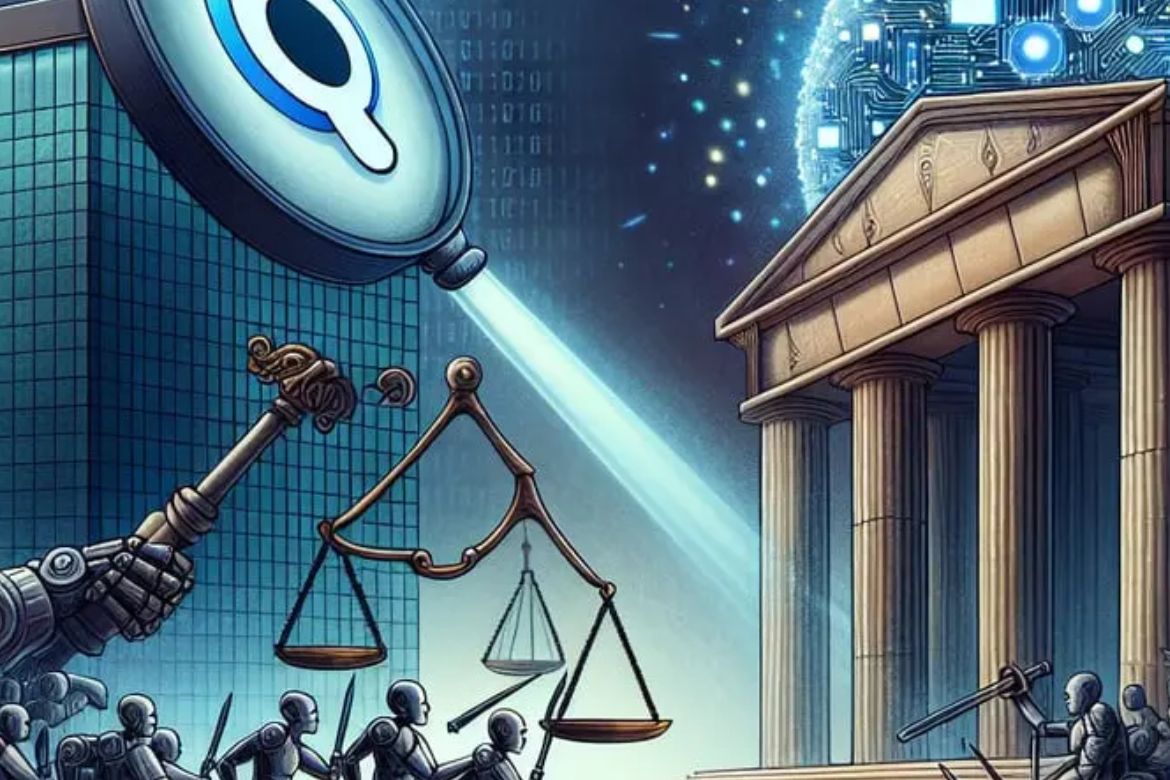Washington, D.C. – In a legal drama that could redefine the digital economy and reverberate across boardrooms in the Gulf and beyond, artificial intelligence has taken center stage in the U.S. government’s antitrust trial against tech giant Google.
As the penalty phase wrapped up last Friday, U.S. District Judge Amit Mehta posed a question that signals how deeply AI is reshaping the very foundations of internet search — and how regulators must now grapple with past monopolies in a fast-evolving AI world.
“Does the government believe there’s still a market for a new search engine to emerge, even with remedies in place?” he asked, interrupting the Department of Justice’s (DOJ) closing arguments.
The judge’s question reflects a broader concern: Can traditional antitrust remedies keep up with technological transformation, especially with generative AI platforms like ChatGPT, Perplexity AI, and Bing AI redefining how users access information?
The DOJ’s Position: A Frozen Market Despite AI
The DOJ argued that Google’s dominance remains deeply entrenched — propped up by exclusive agreements with device manufacturers and browser providers. Despite the emergence of AI, the market remains effectively “frozen,” leaving new competitors with no runway to gain traction.
“This market has been locked down by Google for nearly 20 years,” said DOJ attorney David Dahlquist, urging the court to impose far-reaching penalties, including:
- Banning default search engine agreements,
- Requiring Google to share search data with competitors, and
- Possibly ordering the divestiture of Google’s Chrome browser.
“These are not radical ideas,” Dahlquist said. “They are necessary steps to restore competition in a market that has long been sealed off.”
Google’s Counter: AI Is Already Reshaping the Playing Field
Google’s legal team responded by framing the DOJ’s proposals as outdated and excessive in a world increasingly driven by AI.
“AI is already changing the game,” argued Google’s lawyers, referencing testimony from CEO Sundar Pichai, who claimed that tools like ChatGPT make it “trivial” to replicate the search experience.
The company emphasized that the rapid evolution of AI undermines the notion of a static monopoly and renders drastic regulatory measures unnecessary. Instead, Google proposed lighter remedies — like allowing users to switch default search providers once a year and preserving its right to negotiate deals with partners such as Apple and Mozilla.
From Silicon Valley to Cupertino: Apple’s Unexpected Role
Adding to the intrigue, Apple’s senior vice president Eddy Cue took the stand earlier in the proceedings, offering insights that shook the courtroom and the market.
“You may not need an iPhone 10 years from now,” he said. “You still need toothpaste, but technology changes — you have to earn your place.”
His comments — viewed as a subtle nudge toward the idea that tech monopolies are more fragile than they appear — were interpreted as a challenge to the assumption that Google’s dominance is permanent.
A Gulf View: Why It Matters Here
For policymakers and tech leaders in the Gulf, this trial holds critical implications. As nations across the region invest heavily in digital economies and AI innovation — with initiatives like the UAE’s AI Strategy 2031 and Saudi Arabia’s Vision 2030 — the case serves as a bellwether for how Western regulators may shape the global tech landscape.
It also underscores the importance of maintaining open digital markets that foster competition, support local innovators, and ensure access to essential datasets — an issue likely to echo across digital policy dialogues in the GCC.
The Road Ahead: Precedents and Possibilities
Judge Mehta now faces a complex decision: how to penalize a company for monopolistic behavior without imposing remedies that will soon be outdated by AI innovation.
In one revealing moment, he even questioned whether AI companies like OpenAI or Perplexity might be eligible to receive Google’s search data under any court order.
“Not today,” the DOJ replied, “but eventually.”
A senior DOJ official later summed up the stakes: “We don’t know what 2035 looks like — not even Google knows. But we do know we need a foundation for fair competition today.”
Final Thoughts
The trial may conclude in Washington, but its ripple effects will stretch worldwide — influencing how governments, including those in the Gulf, regulate Big Tech and foster AI ecosystems.
Whether the court forces structural changes at Google or simply reshapes the legal playbook for digital monopolies, one thing is clear: the future of internet search — and who controls it — is now in the hands of a judge. And artificial intelligence is watching closely.


